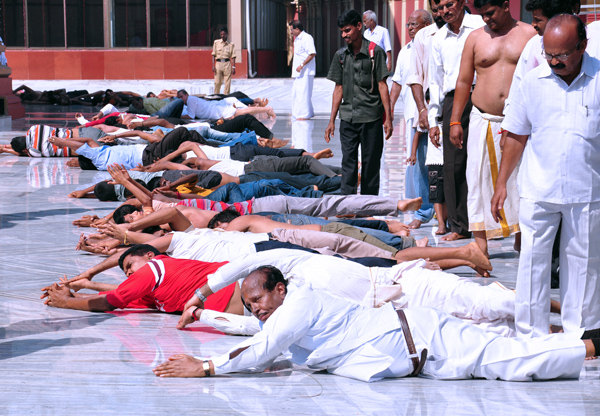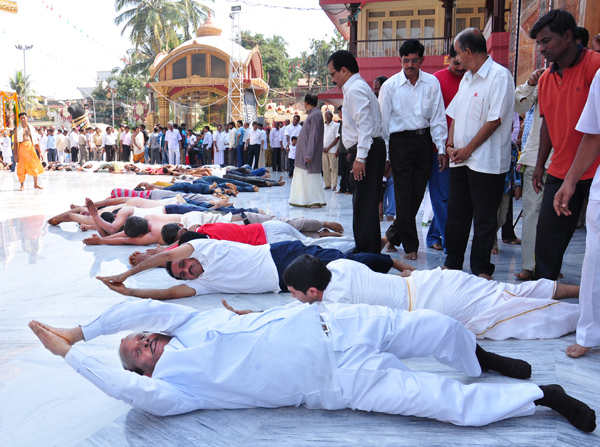Bengaluru, Feb 10: The Rashtriya Swyamsevak Sangh (RSS) on Sunday conducted a route march (Pathsanchalan) in Ramanagara to express solidarity with the anti-Christian forces protesting against a project to install 114-feet tall Jesus Christ statue atop Kapalabetta in Harobele town in Kanakapura taluk in Ramanagara district.
Hindutva ideologue Kalladka Prabhakara Bhat, who had led a rally in Kanakapura last month against the project, also led the Sunday’s route march and addressed a public meeting following the march.
“The district name is Ramanagara, but they have not nurtured the culture of Ram here. They have developed a strong culture of Ravana, which we pledged to dislodge,” Bhat told the gathering.
He said the Sangh Parivar will never allow the statue to come up as he said it would foment religious conversion that is rampant in Harobele.
“The so called Kapalabetta is of stones, which are revered as Lord Muneswara by the Hindus. This hillock must be named as Muneswara Betta,” he added.
Referring to the ongoing protests against the Citizenship (Amendment) Act (CAA), Bhat said the law was brought in to protect the Hindu minority in Pakistan and Bangla Desh.
“The Muslims living in India hail Pakistan. But when we ask them to go to Pakistan, they will never go,” he took a jibe at the minority community.
Reacting to the RSS route march, senior Congress functionary DK Shivakunar, who represents Kanakapura assembly seat, said the Sangah Parivar is trying to disturb the communal harmony in the district and they will never succeed in it.
“The BJP is operating through the Sangh Parivar in the Ramanagara district. The party has won as may as 26 Lok Sabha seats in Karnataka, still they are doing all these things to keep their support base. People of Ramanagara will never back them,” said Shivakumar.







Comments
Add new comment